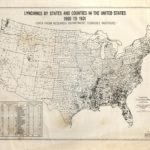By MARK KEIERLEBER
The Herald-Times
BLOOMINGTON, Ind. (AP) _ Isolated by forest, two roads led into and out of Indiana’s Knox County in the early 1800s. Dirt paths connected the homes in the rugged frontier, many of which sat abandoned by former French or English occupants. Among the Native Americans, French and English immigrants and Revolutionary War veterans was a population of African-Americans _ some free, many indentured and most enslaved in a territory that technically banned slavery.
One woman oppressed in Vincennes by indentured servitude was Mary Bateman Clark, until she successfully fought for her freedom and became a pioneer in ending forced labor in Indiana. The life of Bateman Clark, along with the work of her great-great-great-granddaughters to uncover her story and promote its importance, is featured in a new documentary, “Mary Bateman Clark: A Woman of Colour and Courage.”
The documentary, which was produced by the Bloomington-based nonprofit Agency for Instructional Technology, will premiere on WTIU Feb. 21 at 10 p.m. as part of the PBS affiliate’s Black History Month programming. Additional screenings on WTIU will be Feb. 22 at 1 p.m. and Feb. 24 at 4 p.m.
“We’re airing a lot of Black History Month features, but this is that local story,” Scott Witzke, WTIU marketing director, told The Herald-Times (http://bit.ly/XPvNmC ). “It’s a great part of Indiana history that very few people know about. It’s able to tell a story about indentured servitude.”
Bateman Clark’s great-great-great-granddaughter Eunice Brewer-Trotter said she began researching Bateman Clark more than 30 years ago. After speaking to her family about Bateman Clark, Brewer-Trotter searched public records and newspaper clippings for anything she could find.
Bateman Clark was born into slavery in about the year 1800. Benjamin Harrison, a relative of William Henry Harrison, the first governor of the Indiana Territory and the ninth president of the United States, purchased Bateman Clark in Kentucky in 1814.
When Harrison brought her to Vincennes the following year, Bateman Clark was emancipated and immediately indentured for 30 years.
During that time, slaveholders often emancipated and then indentured slaves in order to get around territorial laws banning slavery, including the state of Indiana’s Constitution, which specifically stated “there shall be neither slavery nor involuntary servitude in this state.”
General Washington Johnston, a founder of Vincennes University, a former judge and speaker of the Indiana House of Representatives, purchased her indenture from Harrison, his nephew, for 20 years in 1816. Promised food, lodging and clothing, Bateman Clark signed the contract with an “X.” Had she not agreed, she could have been resold into slavery and sent south.
Seeking freedom, Bateman Clark and her attorney Amory Kinney petitioned the Knox County Circuit Court in 1821 to terminate her indenture, arguing she was being held illegally as a slave. When the court ruled she freely entered into her indenture and had to complete it, Bateman Clark appealed her case to the Indiana Supreme Court, which ruled her service was involuntary and violated the state’s 1816 Constitution.
Although Brewer-Trotter said she had long known Bateman Clark was involved in a legal suit, she said she did not recognize the significance of the case until about 10 years ago, when she visited an Indianapolis bookstore owned by Donna Stokes-Lucas, the Indiana Genealogical Society’s regional district manager.
Brewer-Trotter said Stokes-Lucas showed her a book about Indiana slavery mentioning Bateman Clark’s Indiana Supreme Court case, along with the case involving slave Polly Strong, which determined that children of slaves were not also to be considered slaves in Indiana.
While both Strong and Bateman Clark were represented by lawyer Kinney, Strong’s case was about slavery directly while Bateman Clark’s was about contract law.
“That was when I began understanding the breadth of the story,” Brewer-Trotter said. “These two cases together helped end slavery in Indiana, where there was supposed to be no slavery, because Indiana was supposed to be a free state.”
Bateman Clark’s case set a precedent in the state, Brewer-Trotter said, that helped others in the area petition against their indentured servitude and become free.
Shortly after this discovery, Brewer-Trotter said she teamed up with her sister, Ethel Brewer-McCane, who is the executive director of Praise Stage Productions Theatre Company in Indianapolis. While Brewer-Trotter provided the research and wrote the script, Brewer-McCane re-enacts the life of Bateman Clark. The story is performed for students and adults across the state.
After a producer at AIT saw one of their performances, Brewer-Trotter said, the company contacted them, asking to produce a documentary. AIT Executive Director Chuck Wilson said the organization pursued the film after realizing the positive contribution Bateman Clark made to Indiana history.
“The documentary is a real blessing to us, to get Mary Bateman Clark’s story out there to the public even more so,” Brewer-McCane said. “We try to encourage families to research their history. Most families, if they go back, hopefully they can find information about their ancestors.”
The documentary focuses primarily on the life of Bateman Clark, but incorporates Brewer-McCane’s re-enactments. Brewer-Trotter said they have been working on the film for more than a year.
“Sometimes re-enactments can turn out less convincing, and this turned out very convincing and very believable,” WTIU’s Witzke said. “Because of the ancestry, because of the lineage, the connection, the passion that the people behind it bring to this story, they put their heart and soul into it, and you believe it.”
After gaining her freedom, Brewer-Trotter said, Bateman Clark became an activist. After a mob attacked Kinney for his representation of slaves, he moved to Terre Haute in 1826, eventually becoming a 7th Circuit Court presiding judge.
Under similar scrutiny, Bateman Clark remained in Vincennes and married Samuel Clark, a freed slave, had at least 12 children and became a founding member of Bethel AME Church of Vincennes.
“Mary Clark kind of produced a string of activists, starting with herself,” Brewer-Trotter said.
Brewer-Trotter said her father, who was born in Vincennes, and his family moved to Indianapolis when he was a teenager to avoid racial oppression.
“My father, having been born in Vincennes, Ind., would talk about that community and the difficulty growing up, not just for him but for his ancestors,” Brewer-Trotter said. “He talked about it being a very undesirable place for African Americans to live.”
Brewer-Trotter said her father chose to raise her in a segregated Indianapolis neighborhood because he didn’t want his family subjected to racism.
But since then, culture has continued to progress. In June 2009, descendants joined with city and state officials to dedicated a marker in Bateman Clark’s honor at the Knox County Courthouse. After becoming the first African-American news editor at the Indianapolis Star, Brewer-Trotter retired two years ago.
“What do you think would have happened to the country and its history and the course it took?” Brewer-Trotter said. “Who do you think would have won the Civil War, with more support for that Southern cause? So I like to think this case helped slow down the pace of the growth of slavery here and helped eventually wipe it out.”
___
Information from: The Herald Times, http://www.heraldtimesonline.com











